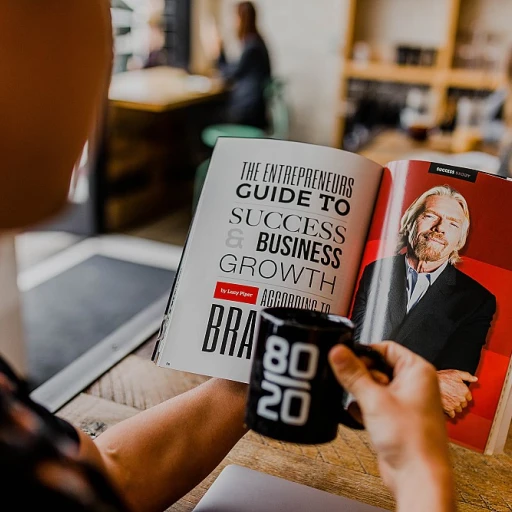
Understanding the Role of AI in Recruitment
AI's Transformative Role in Modern Recruitment
The recruitment landscape has been significantly reshaped by the integration of artificial intelligence (AI), offering a more streamlined and efficient hiring process. AI's ability to process large volumes of data in real time allows recruitment teams to identify top talent more effectively, reducing the time to hire and enhancing the overall candidate experience.
One of the primary benefits of AI in recruitment is its capacity to automate repetitive tasks, freeing up valuable time for recruiters to focus on more strategic aspects of the hiring process. Recruitment automation tools, such as ATS CRM systems, help manage candidate data and streamline the recruitment process, ensuring that potential candidates are not lost in the shuffle.
AI-driven platforms like Zoho Recruit offer features that assist in identifying top candidates by analyzing resumes and matching them with open roles based on specific criteria. This data-driven approach not only speeds up the recruitment process but also improves the quality of hires by ensuring that only the most suitable candidates are shortlisted for interviews.
Moreover, AI can enhance the candidate experience by providing personalized communication throughout the recruitment journey. This personalization can make candidates feel valued and informed, which is crucial in a competitive job market where top talent has multiple options.
While AI offers numerous advantages, it is essential to acknowledge the challenges and limitations it presents, such as potential biases in hiring algorithms. As we explore further, understanding these challenges is key to leveraging AI effectively in recruitment.
For those interested in exploring how AI can further enhance the recruitment process, consider choosing the right LMS for remote teams to support training and development initiatives.
Streamlining the Application Process
Optimizing the Recruitment Journey
In today's fast-paced recruitment landscape, enhancing the candidate experience is pivotal. One significant advantage AI brings to the table is streamlining the application process. By reducing cumbersome steps, candidates can easily navigate through job applications, significantly boosting their overall experience. AI-driven platforms offer valuable tools to manage the recruitment process efficiently. Automated systems can parse through countless resumes, accurately selecting potential candidates who fit the job requirements. This not only saves time but also enables hiring teams to focus on engaging and interviewing top talent. Recruitment software, like those powered by machine learning, can optimize time hire by integrating data-driven solutions that rapidly identify top candidates. By collecting and analyzing data, these systems help in making informed decisions, thereby shortening the recruitment workflow and leading to quicker fill times for open roles. Seamlessly integrated solutions in applications like Zoho Recruit mean that recruiters can spend less time on tedious administrative tasks, freeing up more moments to focus on important aspects like refining candidate interviews and identifying the right hire. Moreover, by automating routine tasks, AI allows for real-time updates and status notifications, ensuring candidates remain informed throughout their recruitment journey. For businesses looking to overhaul their recruitment process, tools like AI-enhanced recruitment software provide a glimpse into the future of hiring, offering practical solutions and expediting the search for talent. The streamlined application process is not only efficient for organizations but ultimately enhances the overall candidate experience by making the hiring process transparent and user-friendly.Personalization in Candidate Communication
Enhancing Communication with a Personal Touch
In the contemporary landscape of recruitment, the role of communication has been magnified, especially as candidates have become more discerning in choosing their potential employers. Amidst a sea of job offers, how a company communicates with candidates can be a differentiator. Artificial Intelligence (AI) has made significant strides in this area by allowing for a more personalized interaction throughout the recruitment process. AI-driven technologies can analyze vast amounts of data in real time to tailor communication, making candidates feel valued and heard. For instance, recruiting software like Zoho Recruit leverages data-driven insights to provide personalized updates and feedback after candidates interview, aiming to enhance the candidate experience. By automating routine communication tasks, recruitment software frees up the HR team to focus on more strategic elements, allowing them to identify top talent more efficiently. It’s important for organizations to adopt a recruiting platform that offers robust data privacy policies, ensuring that candidates’ personal information is handled with care. Integrations between ATS and CRM systems enable recruiters to keep potential candidates engaged over time by periodically sharing relevant job opportunities or company updates. Personalization in candidate communication not only aids in reinforcing a positive image of the hiring organization but also plays a crucial role in reducing the time to fill open roles. By specifically addressing candidate queries and providing timely responses, organizations can significantly enhance the recruiting experience. In a data-driven recruitment environment, this tailored approach not only streamlines the recruitment process but also helps discover and attract top talent. For more insight into optimizing recruitment communication processes, explore how enhancing the store onboarding journey can significantly impact your hiring strategy. By continually refining the personalization aspect, companies can remain a step ahead in recruiting and retaining their most valuable asset – human talent.Bias Reduction in Hiring
Mitigating Bias in the Hiring Process
In the realm of recruitment, bias has long been a challenge, often affecting the fairness and inclusivity of the hiring process. With the integration of AI, there's a significant opportunity to reduce bias, ensuring a more equitable candidate experience. AI-driven recruitment software can analyze vast amounts of data to identify top talent without the influence of human prejudices. By focusing on objective criteria, these systems help teams make data-driven decisions, enhancing the overall recruitment process.
AI tools can assist in:
- Standardizing Candidate Evaluation: AI can streamline the interview process by providing consistent criteria for evaluating potential candidates, ensuring that all applicants are assessed fairly.
- Reducing Unconscious Bias: By automating parts of the recruitment process, AI minimizes the impact of unconscious biases that might influence hiring decisions. This is crucial for creating a diverse and inclusive workplace.
- Enhancing Data Analysis: Recruitment automation platforms, like Zoho Recruit, leverage AI to analyze candidate data in real time, helping recruiters identify top candidates based on skills and experience rather than subjective factors.
However, it's important to acknowledge that AI is not without its challenges. While AI can help reduce bias, it is only as unbiased as the data it is trained on. Therefore, it's crucial for organizations to regularly review and update their AI systems to ensure they are free from biased data inputs. This ongoing process requires a commitment to transparency and adherence to a robust privacy policy to protect candidate data.
As we continue to learn and adapt, AI's role in reducing bias will likely evolve, offering new ways to enhance the candidate experience. By embracing these technologies, organizations can not only improve their hiring process but also build a more diverse and inclusive workforce.











